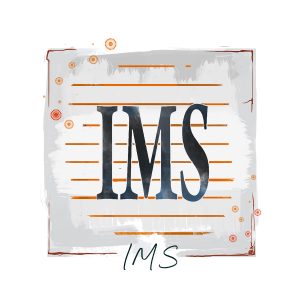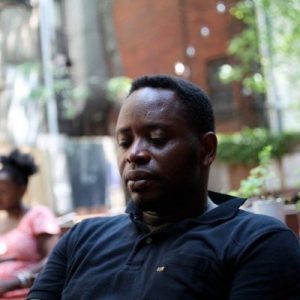Index relies entirely on the support of donors and readers to do its work.
Help us keep amplifying censored voices today.
[vc_row][vc_column][vc_video link=”https://youtu.be/afHCcOfrBSY”][vc_column_text] The Institute for Media and Society (IMS) is a Nigerian NGO that is going to great lengths to improve the country’s media landscape by challenging government regulation and fostering the creation of community radio stations in rural areas at a time when local journalism globally is under threat.
The Institute for Media and Society (IMS) is a Nigerian NGO that is going to great lengths to improve the country’s media landscape by challenging government regulation and fostering the creation of community radio stations in rural areas at a time when local journalism globally is under threat.
IMS’s approach combines advocacy to repeal legal restrictions and practical action to encourage Nigerians to use their voices. IMS studies the legal framework in which Nigerian media operate, and pressures the government to act on their recommendations. It also uses its expertise to stimulate bottom-up changes in the national media landscape by encouraging Nigerians to develop their own media outlets.
IMS reports that 75% of television and radio stations in Nigeria are owned by politicians, and as a result they are divided along political lines, while rural communities are increasingly marginalised.
As the headquarters of the Nigerian Community Radio Coalition, IMS advocated for under reported communities to start their own radio stations, and in 2015, this led to the licensing of 17 community radio stations. Many of these outlets have since evolved into solid platforms that champion community development, transparency in governance and accountability.
In its advocacy work, IMS lobbies the government and the National Assembly to reform the country’s legal framework. In one of its latest battles, IMS has been advocating for the independence of the Nigerian Broadcasting Commission, the agency that regulates the country’s broadcast media, from ongoing governmental interference – a major impediment to freedom of expression.
Through its website, IMS also monitors Nigerian media and tracks violations of the rights of journalists. Their work draws attention to an increasingly hostile environment. The last few years have seen murders, arrests and threats against journalists.
One of IMS’s success stories in 2018 was its opposition of the ‘Nigerian Press Council Bill 2018’, which critics contended was not only draconian and unconstitutional, but would have also criminalised journalism practice. The bill was withdrawn from consideration by the National Assembly.
IMS also successfully lobbied the NBC for reducing community radio license fees from N500,000 to N200,000, and is advocating for their complete removal. [/vc_column_text][vc_separator][vc_row_inner][vc_column_inner width=”1/2″][vc_single_image image=”104691″ img_size=”full” onclick=”custom_link” link=”https://www.indexoncensorship.org/2019/01/awards-2019/”][/vc_column_inner][vc_column_inner width=”1/2″][vc_column_text]
Index on Censorship’s Freedom of Expression Awards exist to celebrate individuals or groups who have had a significant impact fighting censorship anywhere in the world.[/vc_column_text][/vc_column_inner][/vc_row_inner][vc_separator][/vc_column][/vc_row][vc_row][vc_column][vc_basic_grid post_type=”post” max_items=”4″ element_width=”6″ grid_id=”vc_gid:1552321469663-a73739a4-7337-9″ taxonomies=”26925″][/vc_column][/vc_row]
[vc_row][vc_column][vc_raw_html]JTNDaWZyYW1lJTIwc3JjJTNEJTIyaHR0cHMlM0ElMkYlMkZ3d3cuZmFjZWJvb2suY29tJTJGcGx1Z2lucyUyRnZpZGVvLnBocCUzRmhyZWYlM0RodHRwcyUyNTNBJTI1MkYlMjUyRnd3dy5mYWNlYm9vay5jb20lMjUyRmdheXRpbWVzJTI1MkZ2aWRlb3MlMjUyRjEwMTU2MjA2MDM5MDM2MjczJTI1MkYlMjZzaG93X3RleHQlM0QwJTI2d2lkdGglM0Q3MDAlMjIlMjB3aWR0aCUzRCUyMjcwMCUyMiUyMGhlaWdodCUzRCUyMjQwMCUyMiUyMHN0eWxlJTNEJTIyYm9yZGVyJTNBbm9uZSUzQm92ZXJmbG93JTNBaGlkZGVuJTIyJTIwc2Nyb2xsaW5nJTNEJTIybm8lMjIlMjBmcmFtZWJvcmRlciUzRCUyMjAlMjIlMjBhbGxvd1RyYW5zcGFyZW5jeSUzRCUyMnRydWUlMjIlMjBhbGxvd0Z1bGxTY3JlZW4lM0QlMjJ0cnVlJTIyJTNFJTNDJTJGaWZyYW1lJTNF[/vc_raw_html][vc_column_text]“When I started recording my music I made the decision that I would be out. But at the same time I was so conscious of using pronouns and not coming across as too gay or not coming across too assuming,” said MNEK, English singer, songwriter and record producer, speaking at the Sonos Store in London.
Expression Uncensored, which was hosted by Sonos, Index on Censorship and Gay Times Magazine, featured a panel — Julia Farrington, associate art producer at Index, MNEK, Sado Opera, a queer band, and Princess Julia, a DJ and music writer — that discussed queer music and censorship around the world.
Farrington defined the two main types of censorship that she believes exist — classic state-sponsored censorship imposed through laws and government, and self-censorship.
MNEK’s self-censoring in the beginning of his career was the result of societal pressures. While he said that his coming out was in general a positive experience, he also talked about growing up in a British-Nigerian household where the only thing you hear about homosexuality is that it is wrong. After coming out to his parents, MNEK said that while they support his career and the music he produces, they are sometimes still shocked because “it’s not something they’re used to but it’s all about them learning. There’s nothing wrong with learning something new.”
Living in London, Princess Julia said she had never faced state-sponsored censorship. Instead she faced self-censorship as a result of cultural pressures to look and be a certain way. As part of the Blitz Kids of the 1970s, she helped usher in an era of queer people being able to express themselves the way they wanted to.
She believes that “there’s always been avant garde scenes, underground scenes going on. In times of repression or rebellion even, these scenes tend to emerge. Obviously in Russia, that why there are pockets of creative people striving forth and trying to have an identity.”
Hailing from Russia, Sado Opera faced more state-sponsored censorship, which, in general, leads to self-censorship for fear of being targeted.
Sado Opera was originally created to fight the censorship and homophobia in Russia. The group talked about Russia’s homosexual propaganda law, which forbids talking about homosexuality in public. The name of the law was changed to Promoting Untraditional Family Values to hide the homophobia of the government. The government gives laws unassuming names to make it harder for people to discern the malicious intent behind the legislation, Sado Opera explained.
“Other artists might want to express support, but they can’t. The atmosphere makes you double-think what you say” said Sado Opera.
Although MNEK hasn’t experienced the level of state-sponsored censorship that Sado Opera has, he talks about how he hasn’t been to Nigeria in a long time because of unconscious “fears and my own insecurities with going back there and knowing the legislative issues that are there.”
Sado Opera was only able to be more open about their message when they moved to Berlin, where they have sponsorship from a club and have partnered with several organisations that support LGBTQ+ people facing persecution and women who have survived rape.
MNEK said “it’s a bonus when you realise your music is helping someone live their life” and each artist revealed similar sentiments. [/vc_column_text][vc_row_inner][vc_column_inner width=”1/4″][vc_column_text]
[/vc_column_text][/vc_column_inner][vc_column_inner width=”3/4″][vc_column_text]
Index currently runs workshops in the UK, publishes case studies about artistic censorship, and has produced guidance for artists on laws related to artistic freedom in England and Wales.
Learn more about our work defending artistic freedom.[/vc_column_text][/vc_column_inner][/vc_row_inner][vc_single_image image=”101971″ img_size=”full” add_caption=”yes”][vc_single_image image=”101969″ img_size=”full” add_caption=”yes”][/vc_column][/vc_row]
 Nigerian writer Ken Saro-Wiwa Junior has died in London, aged 47, following a stroke.
Nigerian writer Ken Saro-Wiwa Junior has died in London, aged 47, following a stroke.
Saro-Wiwa Junior, a journalist and special adviser to three Nigerian presidents, was the son of environmental activist Ken Saro-Wiwa, who was hanged at the orders of Nigeria’s rulers in 1995.
Saro-Wiwa Junior last featured in Index on Censorship magazine in 2015, marking the 20th anniversary of the hanging by revisiting a letter his father sent him from prison.
From the Index on Censorship magazine archives, read in full: A letter from Ken Saro-Wiwa.
In it, Saro-Wiwa Junior wrote: “I am struck now as I was then at the way the letter is clearly written for public consumption as much as for my benefit. I bristled back then at the realisation that I was being served up as a piece of agitprop but now I can smile at the memory.
“I duly did my duty as instructed in the letter, getting the word out to the world’s media and defending my father right up to his execution and for some time after. In a way you could say it was the making of me as a man, a journalist and a writer – pretty much as he predicted in this letter.”
Nigerian activist Ken Saro-Wiwa was one of the Ogoni nine, hanged in 1995 along with eight others by the Nigerian government for his continued protest against treatment of the Ogoni people. His death caused international outrage and sparked the banning of Nigeria from the Commonwealth of Nations for over three years. Since his trial and execution, Saro-Wiwa has become a pillar of free expression and many of his letters and short stories have been published in Index on Censorship, along with pieces about his life’s work. Most recently his son, Ken Saro-Wiwa Junior, published “A letter from Ken Saro-Wiwa” on the 20th anniversary of his death. This reading list groups together a collection of these works.
Students and academics can browse the Index magazine archive in thousands of university libraries via Sage Journals.
Ken Saro-Wiwa articles
Ordeal by Innocence by Adam Newey and Ken Saro-Wiwa
Adam Newey and Ken Saro-Wiwa, November 1995; vol. 24, 6: pp. 164-166
Written while Saro-Wiwa was still on trial, Adam Newey writes about how many believe that he will be found guilty and sentenced to death. This is followed by an extract from a statement that Saro-Wiwa was prevented from reading out in court.
Corpses have grown by Ken Saro-Wiwa
Ken Saro-Wiwa, September 1997; vol. 26, 5: pp. 81-82
Taken from Saro-Wiwa’s collection, Songs in a Time of War
The new beggars by Ken Saro-Wiwa
Ken Saro-Wiwa, November 1996; vol. 25, 6: pp. 79-86
A short story based on Saro-Wiwa’s experience with one of the “new” types of beggars, those who tell touching stories in order to get money
William Boyd on Ken Saro-Wiwa, December 2010; vol. 39, 4: pp. 93-96
British novelist William Boyd writes about his friendship with Saro-Wiwa and the international attention his cause gained in the 1990s
Letter to My Father by Ken Saro-Wiwa
Ken Saro-Wiwa, November 2005; vol. 34, 4: pp. 24-29
On the tenth anniversary of his father’s murder, Ken Saro-Wiwa Junior recalls events and reflects on what has (and has not) changed
The murderers in our midst by Adewale Maja-Pearce
Adewale Maja-Pearce, January 1996; vol. 25, 1: pp. 57-61
A detailed account of Saro-Wiwa’s execution alongside responses to Nelson Mandela’s call for Nigeria’s suspension from the Commonwealth
When knowledge is not enough by “Editorial”
Editorial, January 1996; vol. 25, 1: pp. 3
A short mention of Saro-Wiwa’s execution, and how publicity and knowledge of the volatility of the conflict was not enough to save the Ogoni nine
Letters- Blaming the victim by Ike Okonta
Ike Okonta, November 1997; vol. 26, 6: pp. 8-10
A letter focusing specifically on the role of Shell in Nigeria
Portrait of a Year by Caroline Moorhead
Caroline Moorhead, March 1996; vol. 25, 2: pp. 188-192
A look at Human Right’s Watch’s “authoritative and impressive” report on violations carried out by Shell in Nigeria
The Ken Saro-Wiwa reading list can be found here